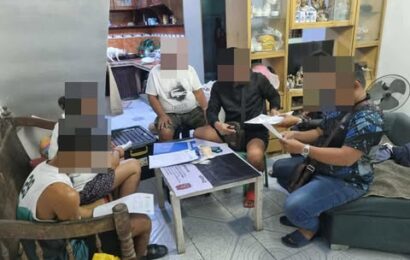Karapatan welcomes the issuance of a temporary protection order for an activist who survived abduction earlier this year, but added that victims must also seek other means to assert their rights.
In an en banc resolution dated September 9, 2024 but released yesterday, the Supreme Court took the first step in granting petitioner Francisco “Eco” Dangla his motion for court-mandated protection after he and a companion, Joxelle “Jak” Tiong were abducted in Pangasinan on March 24, 2024 and surfaced four days later.
Dangla and Eco, both environmental activists, were subjected to four days of physical assault and psychological and mental torture by men claiming to have links with the Armed Forces of the Philippines (AFP) and the Philippine National Police (PNP) who tried to recruit them as government agents.
In its ruling, the Supreme Court prohibited Philippine Army chief Lt. Gen. Roy Galido, 702nd Infantry Brigade chief Brig. Gen. Gulliver Señires, PNP chief PGen. Rommel Francisco Marbil, PNP Regional Office I chief PBGen. Lou Evangelista and Pangasinan Provincial PNP chief PCol. Jeff Fanged and elements under their commands from entering within a radius of one kilometer of Dangla, his places of residence, work and present locations as well as those of his immediate family.
The temporary protection order remains in effect while the Court of Appeals (CA) conducts a summary hearing on Dangla’s petition for writs of amparo and habeas data. The Supreme Court directed the CA to conduct the hearing within five days from the receipt of the resolution and decide the petition within 10 days from the time it was submitted for resolution.
“We should be vigilant in monitoring the developments in Dangla’s case. The writs of amparo and habeas data have essentially been a mixed bag. While there have been positive developments such as the Supreme Court ruling on Bayan Muna activist Siegfred Deduro that expanded the scope of the writs to include red-tagging, other rulings have denied protective writs to abduction survivors Jonila Castro and Jhed Tamano as well as to Karapatan, Gabriela and the Rural Missionaries of the Philippines whose leaders and members have suffered attacks on their human rights and civil liberties,” said said Karapatan secretary general Cristina Palabay.
“It is clear that activists and others threatened with violations of their human rights must resort to means other than these writs to protect and assert their rights,” she said. “A strong people’s movement remains the best way of protecting human and people’s rights.”





